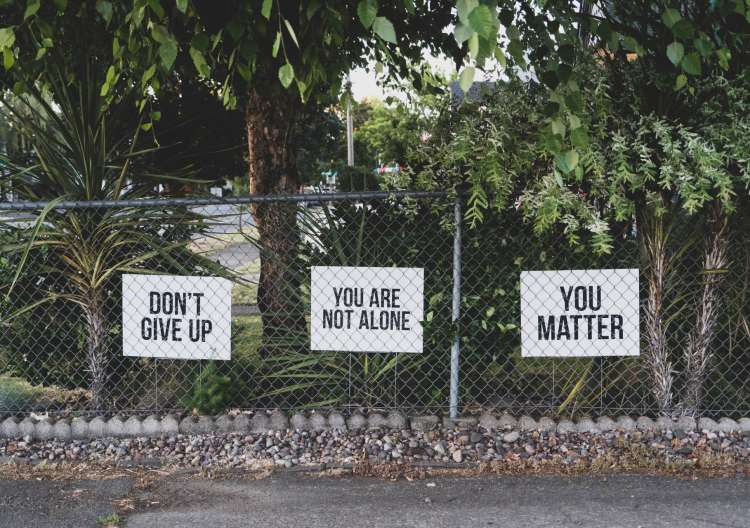By Carole Spiers
As a weekly columnist for Gulf News, I have addressed many issues relating to workplace stress. Many readers have written to me to ask me various questions regarding the best way to manage stress, so I thought it would be a good idea to share some of these with you.
Q: What is stress?
A: Stress is the adverse reaction that people have to excess pressure or other types of demands placed on them. It arises when they perceive that they are unable to cope with those demands
Q: Is stress good for me?
A: No. It is often mistakenly thought that stress is good for people, when in fact, long-term stress is invariably harmful. A certain amount of pressure can indeed motivate and can therefore be useful, but stress is never so.
Q: Can stress seen as a weakness – particularly in industry?
A: Yes. If an individual works in an organisation, where for example, there is the possibility of imminent redundancies, he/she may seek to cover up any signs of stress in the belief that they may be regarded as unable to cope with their job and might be regarded as dispensable.
Q: Does stress affect everyone equally?
A: No. An employer or Manager should appreciate that not all members of their team will react in the same way to any given problem. What one person perceives as merely pressure, another may perceive as stress.
Q: What makes events stressful?
A: Negative events are more likely to be stressful than positive events – although not exclusively so. Uncontrollable or unpredictable events are more stressful than those that are not and ambiguous situations are often perceived as more stressful than those that are clear-cut.
Q: How do I recognise stress in myself?
A: Depending on the individual, stress can manifest itself in different ways including heart palpitations, mood swings, panic attacks, over-dependence on caffeine, anxiety, loss of confidence, aggressiveness, headaches, poor time management and lack of concentration.
Q: Why do we become stressed?
A: Fundamentally, it is the way that you think about a situation rather than the situation itself that causes stress. Problems occur when the pressure you are under seems to be overwhelming or out of your control.
Q: I have been called a stress ‘carrier’ – what is it?
A: ‘Stress Carriers’ are people, very often in a management or supervisory position, who have the ability to cause stress in others, by intentionally raising the anxiety level of all those around them without suffering any adverse effect on themselves. Only you can answer the question as to whether you are one or not!
Q: I feel that my workload is too much for me What can I do about this?
A: First of all, you need to be very clear as to whether your workload is too great or if you have received insufficient training to carry it out. If it is a case of too much to do in too little time, then you need to talk to your boss and discuss it in a clear and concise way. You will need to look at the urgent priorities and have this as a point of discussion at your meeting.
Q: What is the Homes-Rahe Life Changes Scale?
A: In 1976, psychiatrists Thomas Holmes and Richard Rahe examined the medical records of over 5,000 medical patients as a way to determine whether stressful life events might cause illness. People were asked to tally a list of 43 life events based on a relative score. Thus the Social Readjustment Rating Scale or the Holmes and Rahe Stress scale was born.
Q: What is the importance of support network to me at times of stress?
A: It is important to be aware that coping with stress can be made demonstrably easier with the support from colleagues, family or friends. Strong and caring friendships are an essential benefit in helping you to learn how to cope with pressure and to counteract stress. ‘A problem shared is a problem halved’ is a rather well-worn phrase, but in the area of stress management, it is undeniably true.
Q: What are the early warning signs of stress in my team?
A: Here are some key indicators:
- Unexplained absenteeism
- Reduced work performance
- Loss of concentration
- Increased work errors
- Poor timekeeping
- Working unnecessary long hours
- Frequently reporting sick
- Irritability or aggression
- Avoidance of face-to-face contact
- Loss of ambition
Q: What are some of the common causes of work-related stress?
A: Poor management and insufficient training combined with a lack of communication, are three primary causes. The style and methodology with which management tackles day-to-day issues is clearly important in order to preclude them from becoming real problems. At all levels, there will usually be a pressure to perform in respect of workloads and targets. However, if this pressure is prolonged, it can be stressful. It is therefore most important that the particular management style employed achieves the appropriate balance between consultation and control. In situations, where work is delegated, adequate management training and support should be sufficient to pre-empt the emergence of problems that could well have been foreseen.
Q: I often hear the word ‘presenteeism being used. What is it?’
A: ‘Presenteeism’ is an unhealthy attitude adopted by stressed employees who remain at work when others have gone home. It frequently leads to individuals feeling guilty about taking their annual holiday entitlement, and for these employees, it is often a case of ‘don’t forget your mobile phone and your laptop’, rather than ‘don’t forget your passport and sun screen!’ ‘Presenteeism’ can be a symptom of home-related stress, when the employee prefers to be at work rather than at home. Some people may choose to work longer hours to make up for other inadequacies in their private lives. Whatever, its cause, ‘presenteeism’ is effectively the opposite of ‘absenteeism’ and can be just as detrimental to business.
Q: Can you give me some stress management interventions that are working in industry today?
A: The following initiatives are those that I have introduced into companies over many years:
- Rationalise the stress management function: Review the needs of the organisation and its workforce and provide a business case for the phased provision of stress management training and support and routine risk assessment.
- All organisations should have a policy for managing stress, designed for the protection of the employee and the employer and these policies should be constructive and not adversarial if they are to be effective.
- Stress Awareness training for employees at all levels in the organisation is desirable with the aim of encouraging a supportive corporate culture and philosophy.
- Stress Management training for all those in a supervisory or management role to assistant them in recognising, managing and reducing stress levels in their staff.
- Stress Mediation should be introduced providing neutral arbitration between management and employees to avoid situations escalating out of control.
- Stress Counselling for employees requiring a telephone and / or face to face counselling service
Q: At my last performance review, I was told I had to improve my management style. Can you point me in the right direction to avoid my losing my job?
A: Effective people management is a skill that many managers find difficult so you are not alone. It is however, an essential skill if you are to lead your team with confidence and achieve consistently good results. The following tips should help you:
- Encourage a ‘can do’ attitude in a realistic way. Encourage individuals to come up with ideas on how they may be better able to achieve targets, not reasons why they cannot.
- Facilitate feedback. Individuals appreciate the chance to say how they perceive both you, as their manager, and their job.
- Be approachable and be available.
- Reduce uncertainty to a minimum and give information about whatever may affect their jobs, their environment or their future.
- Ensure you and your team have regular structured appraisal interviews.
Q: My business coach has told me to start keeping a stress diary? Will this help me?
A: It is certainly both beneficial and instructive to keep a diary for 2-3 weeks, to help identify the reasons for the feelings you are experiencing that are related to excessive pressure. Although for many people, the act of keeping a diary may itself appear to be an additional chore, it can prove invaluable in helping to understand not only the primary sources of your stress, but also the frequency with which you experience the effects of them upon your daily life.
Q: Would being more assertive help my stress levels??
A: Many people find it very difficult to say ‘no!’. They put themselves in invidious situations by accepting additional work or tasks when they have, in reality, insufficient resources to complete them. The consequences are often disappointment in themselves and others that invariably leads to both physical and psychological stress, and a reduction in self-esteem and self-image.
Q: Why is exercise good to beat stress?
A: Exercise reduces muscle tension and uses up adrenalin and energy released by the ‘fight or flight’ response.
Q: Can you help me sleep at night?
A: Sleep has a major role to play in helping the body to repair itself both physically and mentally. Th following key strategies will help you obtain benefits from the ‘good sleep’ that you need to function at maximum levels.
- Don’t eat heavy meals before you go to bed.
- Keep caffeine consumption to a minimum during the evening.
- Prior to going to bed, try to take your mind off of the problems of the day. Read a book, listen to some soothing music, watch an amusing film or do some other kind of relaxing activity.
- If you wake up at night with your ‘to do’ list in your mind, make a point of writing this before you go to bed!
- Keep a pencil and paper at your bedside in case you wake up in the night with things on your mind.
These are just some of the many questions that I have received during the year. However, if you have a question, just drop me a comment and I will answer it for you.
Reprinted with the kind permission of Gulf News.
Need a Motivational Speaker or Awards Host for your next Conference or Boardroom Briefing?
Work Stress Expert, Carole Spiers will deliver the charismatic, high-impact keynote presentation, ‘Show Stress Who’s Boss!’ based on her new book, at your next conference. Contact us – [email protected] or call + 44 (0) 20 8954 1593
See Carole live on platform here: http://bit.ly/qRU9YD
Simple Work Stress Solutions
Take a look at our corporate website where you will find proven work stress management strategies: https://www.carolespiersgroup.co.uk or call + 44 (0) 20 8954 1593
Want to Know How to Deal with Stress?
Carole’s new book “Show Stress Who’s Boss!” which show you how to manage work stress, deal with your anxiety and overcome symptoms of stress. You will find tools, skills and strategies to make your life stress-free. This new book provides the 4 steps to relieve your symptoms of stress. Buy it now! http://www.showstresswhosboss.co.uk





